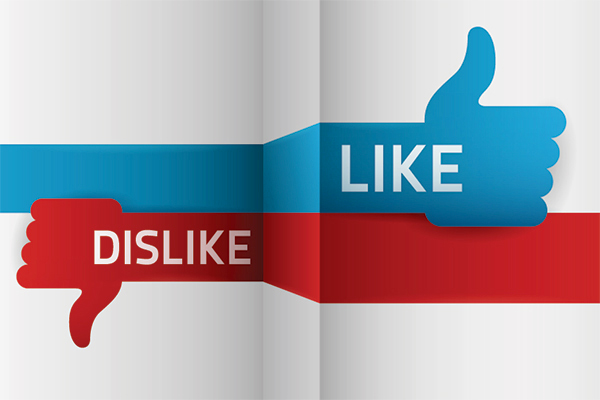If you are interested in Social Psychology (and who isn't?) you'll be well aware of some of the wonderful experiments on priming i.e. situations where participants are exposed to a certain kind of stimulus that influences their response to a future stimulus. The evidence on priming appears to suggest, for instance, that:
If you prime people with images relating to money they will be less cooperative.
If you prime people with words relating to old age, they will walk more slowly.
If you prime people with a warm mug they will be friendlier.
And so forth.
But does the evidence for priming really stack up?
I, like many others I know, had taken such ideas as established facts, as firm as any others in psychology, not least because they were propounded by academic heavyweights like John Bargh, Ap Dijksterhuis, and even Daniel Kahneman. However, in recent years it appears there have been difficulties in replicating the main findings of the priming experiments, and people are beginning to wonder whether priming really works at all.
in recent years it appears there have been difficulties in replicating the main findings of the priming experiments, and people are beginning to wonder whether priming really works at all
There is a wonderful article by Tom Bartlett in the Chronicle Review that details the range and extent of these doubts. One particularly punchy paragraph highlights the heated nature of the debate in the field:
In one of those e-mails, Pashler issued a challenge masquerading as a gentle query: "Would you be able to suggest one or two goal priming effects that you think are especially strong and robust, even if they are not particularly well-known?" In other words, put up or shut up. Point me to the stuff you're certain of and I'll try to replicate it. This was intended to counter the charge that he and others were cherry-picking the weakest work and then doing a victory dance after demolishing it. He didn't get the straightforward answer he wanted. "Some suggestions emerged but none were pointing to a concrete example," he says.
Now the stakes are pretty high here. I don't yet have any settled view, but it does matter that people working in applied psychology, broadly conceived, figure out where they are on this matter, if only because so many people build their practice around the assumption that priming works. For instance, there was a really powerful study done by Common Cause about priming people who are extrinsically motivated with intrinsic motivators and watching the effects:
much of the values debate in the sustainability field relates to the how you think priming works, but there is little discussion about whether it works.
"Although all the participants in the study had been selected because they held extrinsic values to be more important, we found marked differences between, on the one hand, the way in which participants who had been asked to reflect upon extrinsic values spoke about bigger-than-self problems, and, on the other, the way in which participants who had been asked to reflect upon intrinsic values spoke about these problems. Compared to those primed with extrinsic values, participants primed with intrinsic values spoke about social and environmental challenges in ways that conveyed a stronger sense of moral duty, and a greater obligation to act to help meet these challenges."
In this particular study, extrinsic values were primed with reference to wealth, preserving public image and popularity, while intrinsic values were primed with reference to affiliation, acceptance and being broad-minded. While the study's authors are duly cautious about over-extrapolating, they do indicate that their findings show that even those who express no dispositional inclination towards thinking or caring about 'bigger-than-self' problems, can begin to do so over time through the priming of intrinsic values.
Come to think of it, much of the values debate in the sustainability field relates to the how you think priming works, but there is little discussion about whether it works.
My impression is that priming fits with our best understanding of the unconscious, automatic, situational and social features of human nature, and probably does 'work', in the broadest sense, even when individual studies can't be replicated. But, then again, on reflection, perhaps I just think that because I have taken too many studies at face value. Perhaps (cue voodoo music) I have been primed to believe in primes...
Related articles
-
How can we give up bad habits for good?
Ian Burbidge
With the post-Christmas resolutions looming, when we try to address the worst of our seasonal over-indulgences, the question remains: how can we give up bad habits for good?
-
Why fake news doesn't swing elections
Tony Greenham
Fake news doesn’t swing elections, but neither does ‘truth’. We have always filtered new information to fit our existing prejudices. The real danger to our democracy is not an absence of truth, but an absence of trust.
-
Tell me a story? Or give me the figures?
Nathalie Spencer
What is the best way to influence stakeholders and generate change? Different approaches to generating change have different strengths, when should each be used to the best effect?




Join the discussion
Comments
Please login to post a comment or reply
Don't have an account? Click here to register.
The current priming controversy is coming out of a few high-profile failed
attempts to replicate some of the famous experiments, and this is indeed
a legitimate wake-up call for better standards in the discipline.
However, the literature on priming is enormous, and it is a big leap to assume that priming effects don't exist. Here
is an article with some pointers to some of the
evidence for the robustness of priming effects, with successful
replications and meta-analyses. It is written by Bargh, who has his own
motivation to defend priming, but it does give a more balanced view of
the evidence.